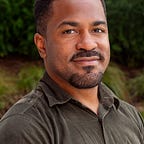Trauma Time
The more I experience, the more I believe that time is not linear. Time can pool, time can shrink, time can cycle, time can circle, time can spiral, and time can follow a straight metered line. But time, for me, does not inherently adhere to a linear structure. Our perception and our reality of time is immensely influenced by the identities we hold, our interpretation of time itself, and the events through which we live.
Academically, I’m influenced by Marcus Anthony Hunter’s work on Indigenous timelines and Black time. Without getting to far into it, he gives the example of the collapse of the Freedmen’s Bank and a series of other Black-owned banks that set Black people back economically well before the Wall Street Crash of 1929. Although we’re more familiar with the Great Depression as an economic phenomenon that affect all United States citizens, many of us are unfamiliar with the events that preceded it and often had a greater effect on the livelihoods of Black people in the United States. There are many more example of how timelines do not just differ, but in fact contradict each other.
Personally, I’m in a loop that is informed by a whole series of events I can most easily trace back to 2017, but many of which began well before that. Moving to Los Angeles in August 2017 marked a new epoch in my personal life story; a rupture in my individual understanding of time. I went from being in a relationship to being in a long distance relationship. I went from being 80 miles from my family of origin to 380 miles from that same family. I went from working full-time to being a graduate student full-time. I went from knowing and enjoying my surroundings to a new process of acclimation and irritation. And I fully re-entered the cycle — that began when I was born — of moving almost every year for factors outside of my control and eventually: personal decisions influenced by larger power structures.
It’s now March 2019, and although I broke some cycles, I reentered others. I’m single again after my third long-term relationship of my life — I began dating when I was 16, I’m 29 now, and each relationship lasted between two and a half to three years. I’m surrounded by all sorts of love and opportunities, but I feel as lonely when I was a closeted and confused fourteen year old. But this loneliness is not due solely — or even mostly — to the end of my romantic relationship. We ended amicably after a year and a half of only seeing each other once a month due to the distance, and we had been discussing whether this was sustainable for us. Similarly, my dislike for Los Angeles and discomfort of learning a new spatial geography and set of people cannot solely bear the blame.
This loneliness and self-isolation is due to my decision to end a toxic familial relationship in 2018. When I severed that, I also damaged other familial relationships. The ongoing mourning of this particular part of my life is punctuated by frequent PTSD nightmares. Therapy helps, talking about it helps, compartmentalizing it gets my through many of my days, but the power of blood supremacy in my own mind leaves me feeling guilty, selfish, and ungrateful.
Still, there is growth. Whether my understanding of time is something anyone else agrees with is irrelevant, because it does not change my experience of the passage of time. Moving away from the personal and to the overtly political, I more clearly see historical links between past events and current events. It’s upsetting to recognize the truth of the old adage: history repeats itself. But I feel ok. I feel less surprised by our daily reality and I feel more prepared to continue living. Chronic depression and anxiety do not go away, particularly when cycles reassert themselves without my explicit consent, but I feel ok. And that’s where I am.
